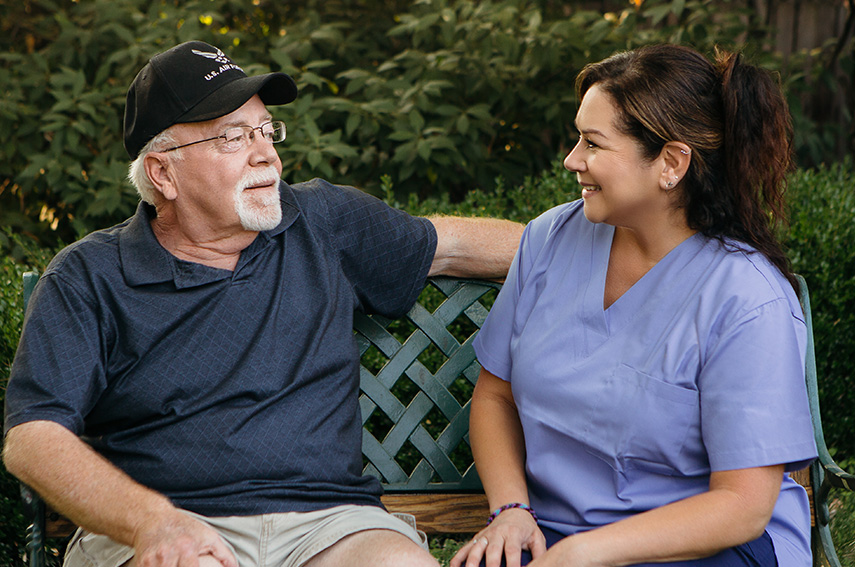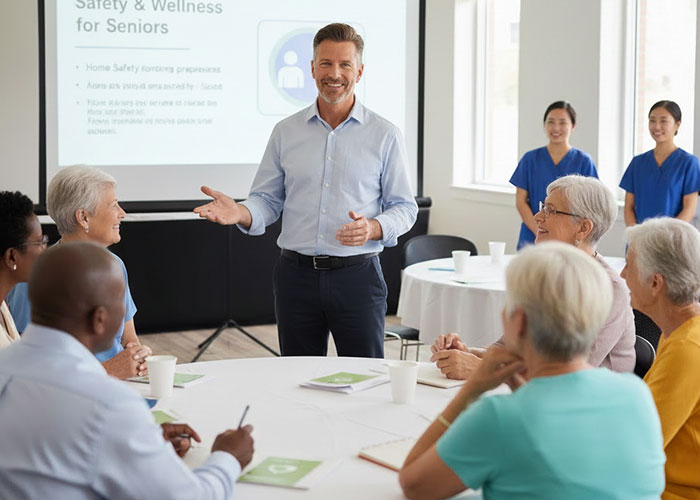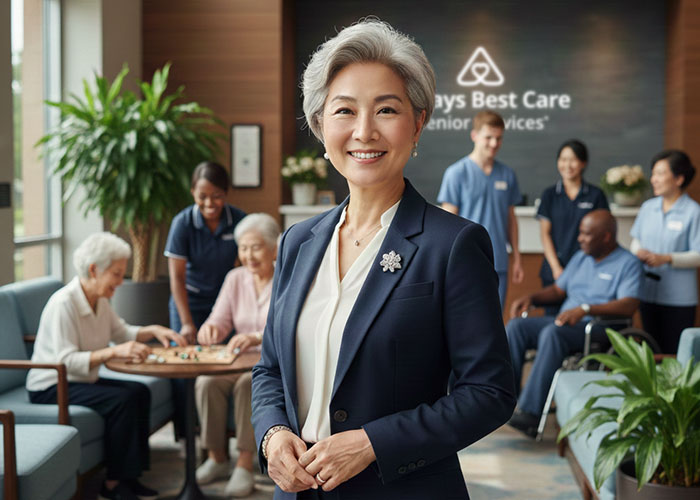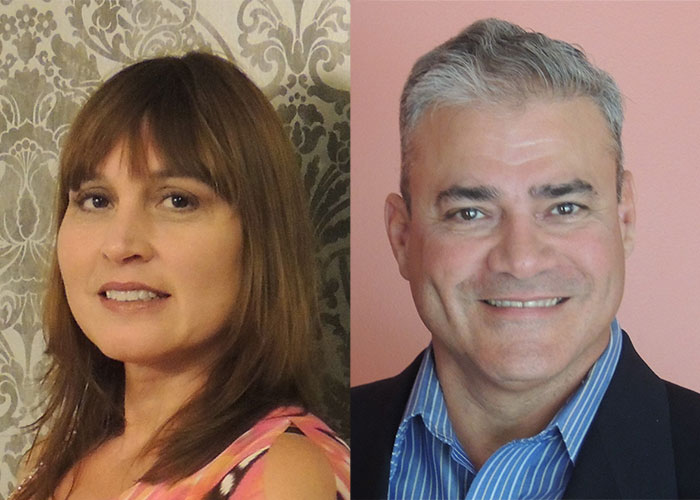Dan Barbee of Always Best Care: Life and Leadership Lessons I Learned In the Military
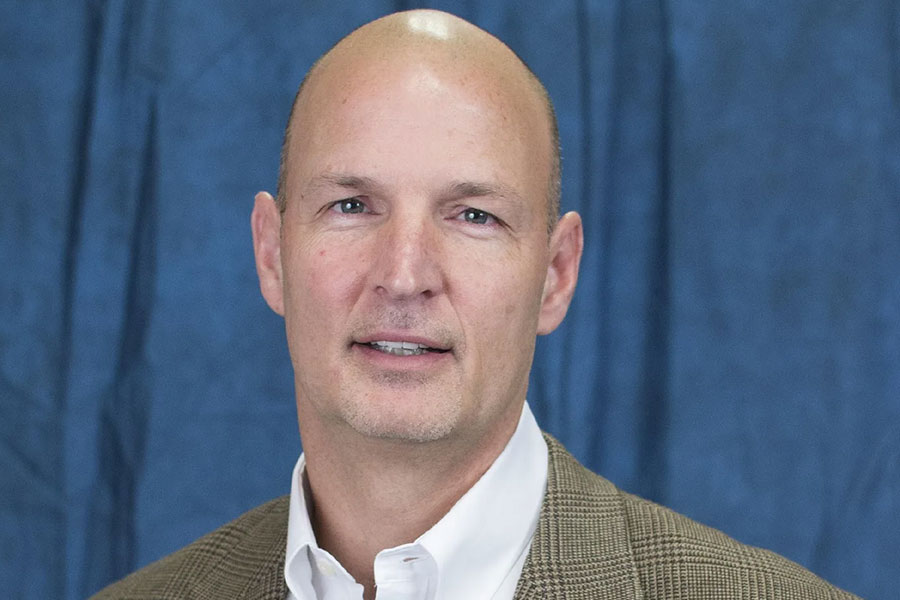
My ego and self-esteem are strong enough that I don’t have to be right: If you’re a good leader, you take advice from everyone. If it’s a good idea, who cares who it comes from? A good leader listens to their team and those around them. I learned this in the Marines. I parlay this to my team and others I meet. By listening, I’ve been part of many successful teams.
As a part of my series about “Life and Leadership Lessons Learned In The Military,” I had the pleasure of interviewing Dan Barbee. Dan has more than 25 years of leadership experience in business operations. The first-time franchisee spent several years in the defense and intelligence industry, before retiring. Dan served in the United States Marine Corps. As a California native, he earned a master’s in environmental science from California State University Northridge.
Thank you so much for doing this with us! Can you tell us a bit about your childhood “backstory”?
I didn’t have a very traditional upbringing. When I was 6 years old, my parents were in a car accident, and I lost them both. I am, however, very blessed to have such a large family. My aunts, uncles, and grandparents took care of me as I grew up in multiple households in Northern California.
What are you doing today? Can you share a story that exemplifies the unique work that you are doing?
I left home for the military in 1982 and spent my career in and around the government and military in operations. Most of my work was focused on taking charge of large real estate and daily operations. When I retired in 2017, I decided to move back to the area where I grew up. I came across Always Best Care and knew it was the best business path for me to pursue because I wanted to do something genuinely good for the community. I was responsible for taking care of my paralyzed grandfather when I was a young teenager, but I was not a good caretaker, and my grandfather wasn’t the best patient. We began to resent each other. Ultimately, we both could have handled the situation better together, and I think opening Always Best Care has shined a light on that. This work to me is meaningful, and I want to make a difference in the field.
Can you tell us a bit about your military background?
I was a Reconnaissance Marine. Back then, our mission was to work in different areas of the world. While in the military, I was in a helicopter accident and was severely injured, breaking my back in a few places along with other minor injuries. Because of this incident, I was discharged and made my way back into civilian life. When recovering from my injury, I was very young and not the best patient. Overnight I had gone from one of the most capable people in the world to an invalid, which was very difficult for me to handle. This brought me back to when I needed to care for my grandfather when I was a teenager and gave me a better understanding of how he felt. The entire experience helped me realize what I wanted to do with my life, and that was to help and care for others. There are many people I come across in this field now who are in the exact spot I was — one day they are walking down the street just fine and the next they need to use a walker. Having that experience myself helped shape me to be more compassionate and help others.
Can you share the most interesting story that you experienced during your military career?
I got to go through tons of training in the military. Part of my job was to be well-rounded and learn how the military trains in different areas. I was able to spend two whole years doing just that. I went to different schools and learned different skills. I always had a clear mission, which helped me stay on task and move toward a common goal with my teams.
Did you experience or hear about a story of heroism, during your military experience? Can you share that story with us?
I had the pleasure of working with General Chili Chilton, among many other great generals. They were able to accomplish so much by getting everyone to work together and do their job as a team. I also had the distinct honor to have dinner with Colin Powell and listen to him speak, and I really admired him. I went on to read his biography. He truly is an incredible individual. I try to look at successful people and what they do to get everyone to follow where they’re leading.
But to answer the question, my daughter is my hero. She is now a Captain in the Army. In high school she decided she was going to be attending West Point and did everything in her power to realize her goals. Her commitment was to the honor code. She is now in Germany as a Company Commander and works tirelessly, always doing the right thing, which reflects the values that every parent hopes their children embrace.
Does a person need to be facing a life and death situation to do something heroic or to be called a hero?
No, while I and my fellow military veterans have faced these incredible situations, this doesn’t have anything to do with heroism. In those situations we are heroes, but a lot of the time people are heroic in other ways. I have team members who go out of their way to help people — that is a very heroic thing to do. In many ways they don’t get compensated for certain acts of service, and they are not just doing it for the recognition either, but rather from the good of their heart. We work with many people who are in advanced age and don’t have families. Oftentimes, my team members will go above and beyond to help these individuals, whether that be moving boxes or picking up a veteran and bringing them to find housing. They are the heroes, helping others who need it without expecting anything in return.
Based on your military experience, can you share with our readers 5 Leadership or Life Lessons that you learned from your experience”?
- Take care of your team: This is a lesson that all branches of the military learn on day one in boot camp and practice throughout their entire military career. It’s of great value to bring it into your everyday business. It’s extremely valuable to have good leaders, who know their team does the work and that caring for them ensures success.
- Direct communication: If there is something that needs to be addressed, it should always be addressed right away. Be straight up and explain that you’re going to be blunt about the situation and explain what you need to say. You don’t have to be mean, just direct. Do not let any problem fester.
- We all succeed, or we all fail together: When everyone works toward a common goal, one person’s success is everyone else’s success. However, when one person fails, the entire group fails. Always make sure everyone knows what the mission is and what their role is in it. People tend to get caught up in their individual goals. They falsely believe their goal must be accomplished, even at the expense of goals of others. It is important to ensure they know how their goals are aligned and co-dependent with everyone’s goals.
- Lead by example: I always tell people if you put a camera inside my home, you’d see the same person you get in front of you every day. It’s important to lead by example and live up to the same character no matter when or where you are, including when no one is watching.
- My ego and self-esteem are strong enough that I don’t have to be right: If you’re a good leader, you take advice from everyone. If it’s a good idea, who cares who it comes from? A good leader listens to their team and those around them. I learned this in the Marines. I parlay this to my team and others I meet. By listening, I’ve been part of many successful teams.
Are you working on any exciting new projects now? How do you think that will help people?
At Always Best Care, I’m always looking to expand what we do. We try to partner with different organizations and even competitors. Ultimately the care of patients is above all else. By working with hospice agencies, home health agencies and even other senior care providers, we can learn more and help people to the best of our abilities. There are even some partners we enjoy working with that may not be a direct correlation to senior care, but when you think about it, it really is. For instance, working with mortgage professionals to help seniors refinance their homes or real estate agents to help them sell their home. There are always partnerships that can be made to better help others, and that’s where my true passion lies. I also have a great passion for helping veterans and will continue to work alongside veteran affairs. We have a little over 100 patients who are veterans, and I’m very pleased to be working with every single one of them.
Is there a particular person who you are grateful toward who helped get you to where you are?
There are a lot of people who have taught me a great deal. I grew up in many households, and it would be hard to pinpoint exactly who had the greatest impact. I would say one of my aunts. She taught me the most about personal responsibility. I learned from her that you can choose the right place to be or the wrong place to be, and if you’re in the wrong place when something happens, that is a choice. By learning this lesson, I was able to choose where I was supposed to be and by default, I was always where I should be and doing what I should. I also think because of my family’s deep ties to religion, they instilled the values of giving back and desire to help others.
Can you please give us your favorite “Life Lesson Quote”? Can you share how that was relevant to you in your life?
“Your success is our success, and our success is your success.” I used this quote with all our employees when I took over the company. I told our caregivers who were working at Always Best Care that they would share in our success, and their wages would go up as we grew. Most did not believe this. At the time they were being paid $10.50 and $11 per hour. Our goal was $19 per hour. In four years, we quadrupled our revenue and raised wages the entire time. Today we are paying a minimum of $20 per hour. One of those caregivers wrote to me just last week and said she didn’t believe this was going to happen when I first told them, and she’s thrilled I kept my promise. So: “Our success was her success!”
This was very meaningful, thank you so much. We wish you only continued success on your great work!
Contact Us for Franchising Opportunities

